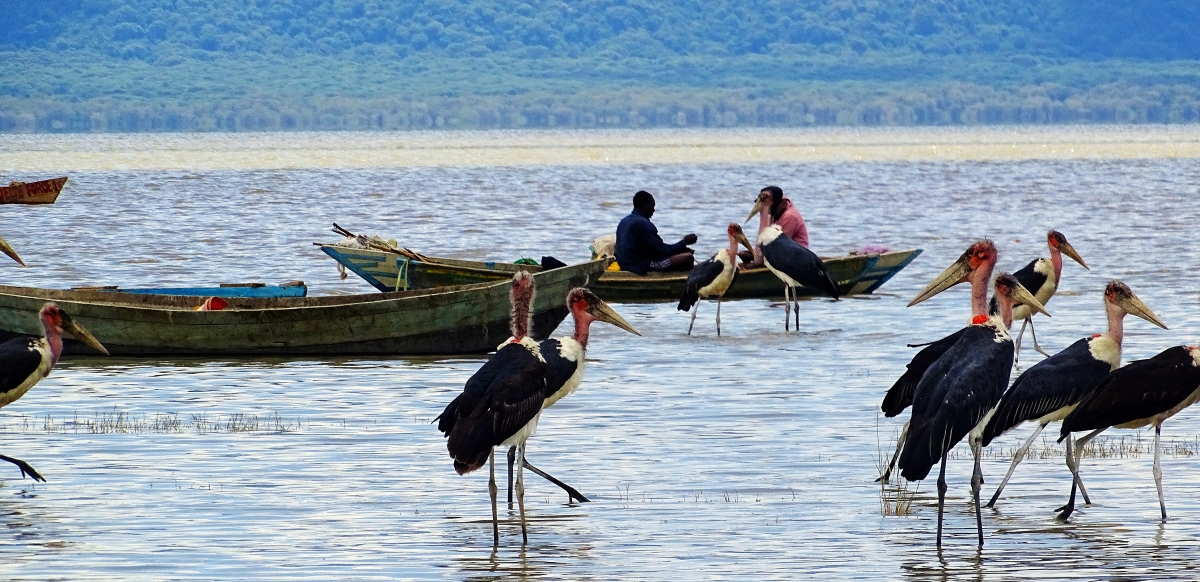Africa boasts 3,280 freshwater fish species. Boatmen catch 3 million tons of them annually
With 28 new varieties recently discovered within the continent’s rivers, lakes and wetlands, Africa has been described to be home to over 3,280 freshwater fish species.
However, the figure that includes Madagascar is almost certainly a significant underestimate since so many species have not yet been described by science and new species are being discovered in Africa every year.
That is according to the just released report on ‘Africa’s forgotten fishes ……and the emergency recovery plan to save them,’ compiled by the World Wildlife Fund (WWF).
According to the report, few people think about Africa’s astonishing diversity of freshwater fishes, despite regularly swimming through the continent’s communities and cultures for millennia.
It is also being revealed that over 3 million tonnes of freshwater fish are caught each year in Africa, representing almost 30 per cent of the reported global freshwater fish catch.
Again, the figure is definitely a major underestimate due a lack of data, especially for small scale fisheries.
The continent boasts 12 of the top 25 inland fish producing countries in the world, with Uganda coming in highest in sixth place according to the Food and Agriculture Organization (FAO).
Fishes remain critical to the daily lives of tens of millions of people – as well as to the overall health of their freshwater ecosystems.
The International Union for Conservation of Nature (IUCN) says Africa’s rivers, lakes and wetlands are home to at least 3,281 freshwater fish species, all being vital for people and nature, supporting ecosystem functionality.

They also provide ecosystem services across the continent, enhancing food security and nutrition for millions, and supporting countless livelihoods, particularly in vulnerable communities and landlocked countries.
The annual catch feeds the highest per capita consumption of freshwater fish of any continent in the world and employs over 3 million people, as well as playing a central role in the cultures of many Indigenous Peoples.
In addition, some fishes are economically important either as the lure for recreational anglers or as dazzling aquarium fishes.
But the WWF report points out that Africa’s freshwater fishes are much more than just food or economic resources.
They are extraordinary.
From the tiny galaxiids of South Africa to the 2m-long Nile perch, Lates niloticus, they’ve evolved to thrive in a vast array of freshwater habitats across this geographically, climatically and topographically diverse continent.
They’re found from sediment-rich rivers and shallow ponds to the world’s greatest lakes, from caves and canyons to mountain streams and flooded forests.
Possibly the most famous of Africa’s freshwater fishes are the incredibly diverse cichlids, with at least 1,600 endemic species found in the Great Lakes – Victoria, Tanganyika, and Malawi.
These cichlids are one of the most spectacular examples of speciation in the world and provide scientists with a unique opportunity to better understand the drivers of species evolution.
Cichlids exhibit a diverse range of parental behaviours.
Many are mouth brooding, protecting their eggs and fry in their mouths, while some Daffodil cichlids, Neolamprologus pulcher, forgo the opportunity to breed at all and choose instead to help parent the offspring of relatives.
Livingstone’s cichlid or kalingono, Nimbochromis livingstonii, from Lake Malawi has developed a unique hunting style; it plays dead to attract other fish to eat it, then it turns the tables by ‘coming alive’ and eating the would-be predator.
But there are so many other weird and wonderful species to discover, such as Africa’s elephant fishes (Mormyridae), which use electrical pulses to communicate with others about sex, size, predators and prey.
There is also the African turquoise killifish, Nothobranchius furzeri, the vertebrate with the shortest lifespan (with most living less than 3 months) and the African tigerfish, Hydrocynus vittatus, which can leap from the water to catch barn swallows.

